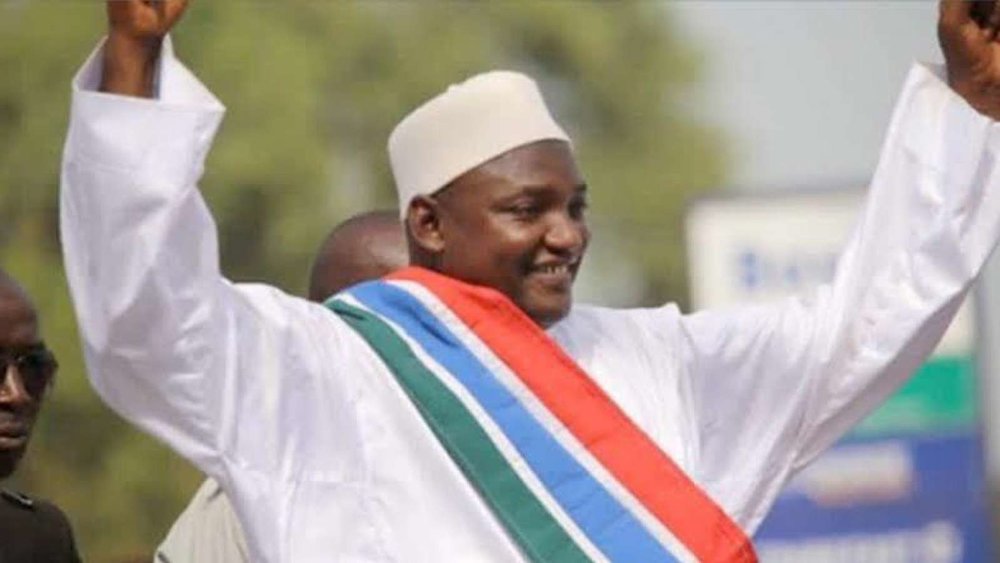Regional support for Gambia’s elected leader

President Adama Barrow of Gambia was sworn into office on Thursday in a most unusual way.
Because his predecessor, the erratic dictator Yahya Jammeh, has refused to concede since losing an election on Dec. 1, Barrow took the oath of office in a hastily arranged ceremony at the Gambian Embassy in neighboring Senegal.
“This is a day no Gambian will ever forget,” Barrow said. “This is the first time since Gambia gained independence in 1965 that Gambians have changed their government through the ballot box.”
There is no doubt that Barrow is the legitimate leader of Gambia, a former British colony. But it remains unclear how soon he will be able to govern the tiny West African nation, which has been ruled by Jammeh, who seized power in a coup, since 1994. Jammeh initially accepted his loss. His defeat was stunning because until last year, the opposition had never been seen as having a viable path to electoral victory in Gambia, a repressive state where political rivals have been jailed and sent into exile. He later claimed the results were invalid.
On Thursday, troops from Senegal and Nigeria crossed into Gambia as part of an admirable effort by the Economic Community of West African States to uphold the will of Gambian voters. It was not clear whether they planned to eventually escort Barrow to the capital, Banjul, or how or when Barrow intends to assert control. The American government and the European Union on Thursday called on Jammeh to step aside. Patricia Alsup, the American ambassador to Gambia, echoed the plea Barrow made to his country’s security forces to stay in their barracks. “It is now more important than ever that all Gambians come together in support of Adama Barrow, the democratic choice of the Gambian people,” she said in a statement.
The uncertainty Jammeh has created by refusing to step down has led at least 26,000 Gambians to flee the country, exacerbating the brain drain of one of the poorest and least developed nations on the continent.
If Jammeh remains intransigent and the standoff leads to violence, he will bear sole responsibility. Jammeh will already be remembered as one of the region’s worst human rights abusers. But he still has time to avoid further damaging his legacy by stepping aside peacefully.
(Source: The NYT)
Leave a Comment